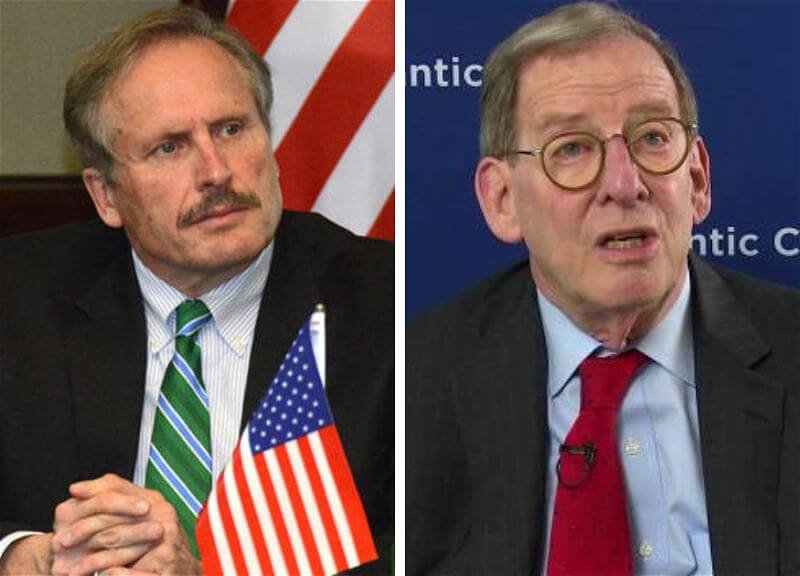WASHINGTON, Aug. 15 – The joint peace declaration signed at the White House on August 8 by Azerbaijani President Ilham Aliyev and Armenian Prime Minister Nikol Pashinyan marked a rare and significant breakthrough in the decades-old conflict between the two South Caucasus neighbors.
But while the agreement signals momentum toward stability, former U.S. ambassadors Robert F. Cekuta and Richard L. Morningstar warn that Washington must remain deeply engaged to ensure the deal becomes a durable peace.
“This was a major step toward advancing stability, peace, and prosperity in the Caucasus and Central Asia,” the former envoys wrote, stressing that U.S. mediation was instrumental in reaching the declaration — and that sustained American involvement will be critical for its ratification and implementation.
The declaration carries weight well beyond Armenia and Azerbaijan. According to Cekuta and Morningstar, it sent “needed signals to Russia, Iran, and other regional players” that the United States intends to play a more assertive role in the South Caucasus — not only as a peace broker, but also as an overseer of proposed new transit routes and as a counter to malign foreign influence.
A centerpiece of the Washington talks was the proposed “Trump Route for International Peace and Prosperity” (TRIPP) — a planned network of road, rail, and potentially oil and gas pipelines across Armenia’s Syunik province. This would connect mainland Azerbaijan with its Nakhchivan exclave and link Turkey, Europe, Central Asia, and beyond. The project, the declaration states, must ensure “unimpeded connectivity” while respecting the sovereignty and territorial integrity of both states.
The ambassadors emphasize that this vision cannot remain on paper. They urge the White House to mobilize key U.S. agencies — including the State Department, Commerce Department, Development Finance Corporation, and Trade Development Agency — to work with the governments and private sectors in both Armenia and Azerbaijan, as well as U.S. firms, to turn the TRIPP project into reality. Regional cooperation with Turkey, Georgia, and Central Asia, they note, will be essential to maximizing the project’s commercial and geopolitical benefits.
Beyond infrastructure, the authors stress the need for people-to-people engagement to heal “nearly four decades of hostility.” They point to past U.S. peacebuilding programs that broke down prejudices and built trust in post-conflict regions, arguing that similar initiatives are urgently needed in the South Caucasus. They also call for tapping into the expertise of diplomats, development professionals, and NGOs with proven track records in reconciliation.
While the August 8 summit and declaration were “much-needed steps toward a lasting peace,” Cekuta and Morningstar caution that history will judge them by what follows. “More needs to be done to bring lasting peace, stability, and prosperity to the region,” they write. “Continued active U.S. engagement is essential to successfully achieve this vision.”


